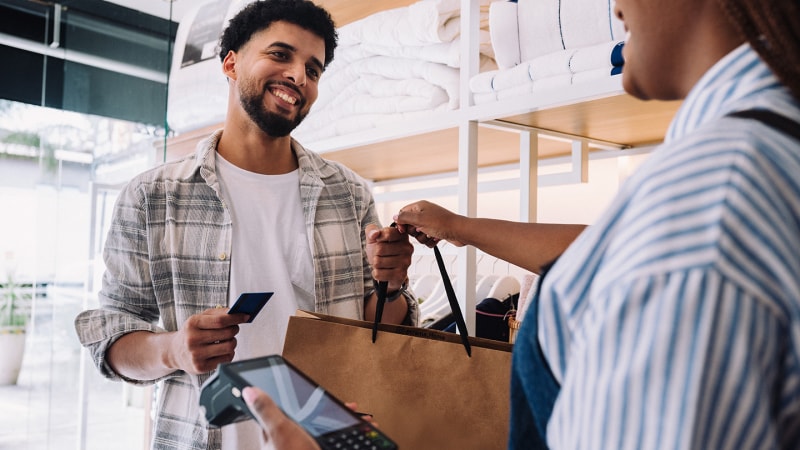How to find the zip code on a credit card

Quick insights
- To have a credit card, you need to have a zip code associated with it.
- Knowing your zip code and where to find it is helpful for when you make certain transactions.
- Knowing your zip code and providing it when prompted is a way to authorize transactions.
When you make your transaction at a gas station, have you been asked to provide your zip code? You may have noticed that gas stations, among other merchants, may ask you to provide this information. But why? Let’s find out more below.
What is a credit card zip code?
A credit card zip code is a 5-digit number that is a part of your U.S. billing address. This address is generally associated with your residential address.
This zip code is used to help verify your identity and may be required when making certain transactions. For example, as outlined above, you may be asked to provide your zip code to complete your transaction when filling up your tank at a gas station. This may help to protect you from bad actors who try steal your credit card information. A zip code provides an extra step that a bad actor may not be able to complete.
Why is it important to know your zip code for your credit card?
Knowing your zip code is essential when it comes to making safe purchases. For example, retailers or merchants may have an Address Verification System (AVS). As in the gas station example, you may be prompted to provide your zip code when making purchases online.
To successfully make purchases and have them approved, you’ll need to know the zip code associated with your credit card.
If your credit card number was stolen offline, a fraudster may not have access to your zip code, which could interfere with their process of completing the purchase.
How to find your zip code for your credit card
You can find your credit card zip code by logging into your bank account online, where detailed information about your account—such as the billing address—is listed. Find the address associated with your card; the 5-digit number in that address is your credit card’s zip code.
Your credit card’s zip code is usually the same as the zip code of your billing and mailing address. This zip code is often shown on your account information and may also appear on other important documents, like your driver’s license.
Note that if you move and update your mailing address to a new zip code, you may need to re-learn a new 5-digit code and update your bank with this new information.
Can I use my credit card without a zip code?
Not all purchases made with your credit card require you to provide a zip code. Some transactions—such as a purchase from a grocery store or local shop—may not ask you to provide one.
However, many gas stations and online merchants may ask you to provide your zip code as part of the transaction and AVS process. Additionally, when you take out a credit card with your issuer, you will be asked to provide a mailing address so that a zip code can be associated with your account.
Note: Banks require you to provide information such as a physical address to help prevent potential criminal activity. You can later use a P.O. Box, but a lender must have a home address on file. Be sure to address the specifics around using a P.O. Box with your financial institution.
What about debit cards?
If you use a debit card rather than a credit card to make a transaction, you may be prompted to provide a personal identification number (PIN). Similar to a credit card zip code, the PIN associated with your debit card allows you to authorize certain transactions.
Whether you’re making a purchase at a drug store or withdrawing cash from an ATM, your PIN is an important safety measure—much like your credit card zip code—that may help provide a buffer from fraudulent activity.
In summary
A credit card transaction comes with many layers of verification. Your credit card zip code is one of several factors that helps to authorize a purchase. Knowing this 5-digit number—which is generally associated with your residential address—can help you complete seamless transactions online or in person. Note that if you move or make changes to your mailing address, you will need to update and subsequently memorize a new zip code for future transactions.



